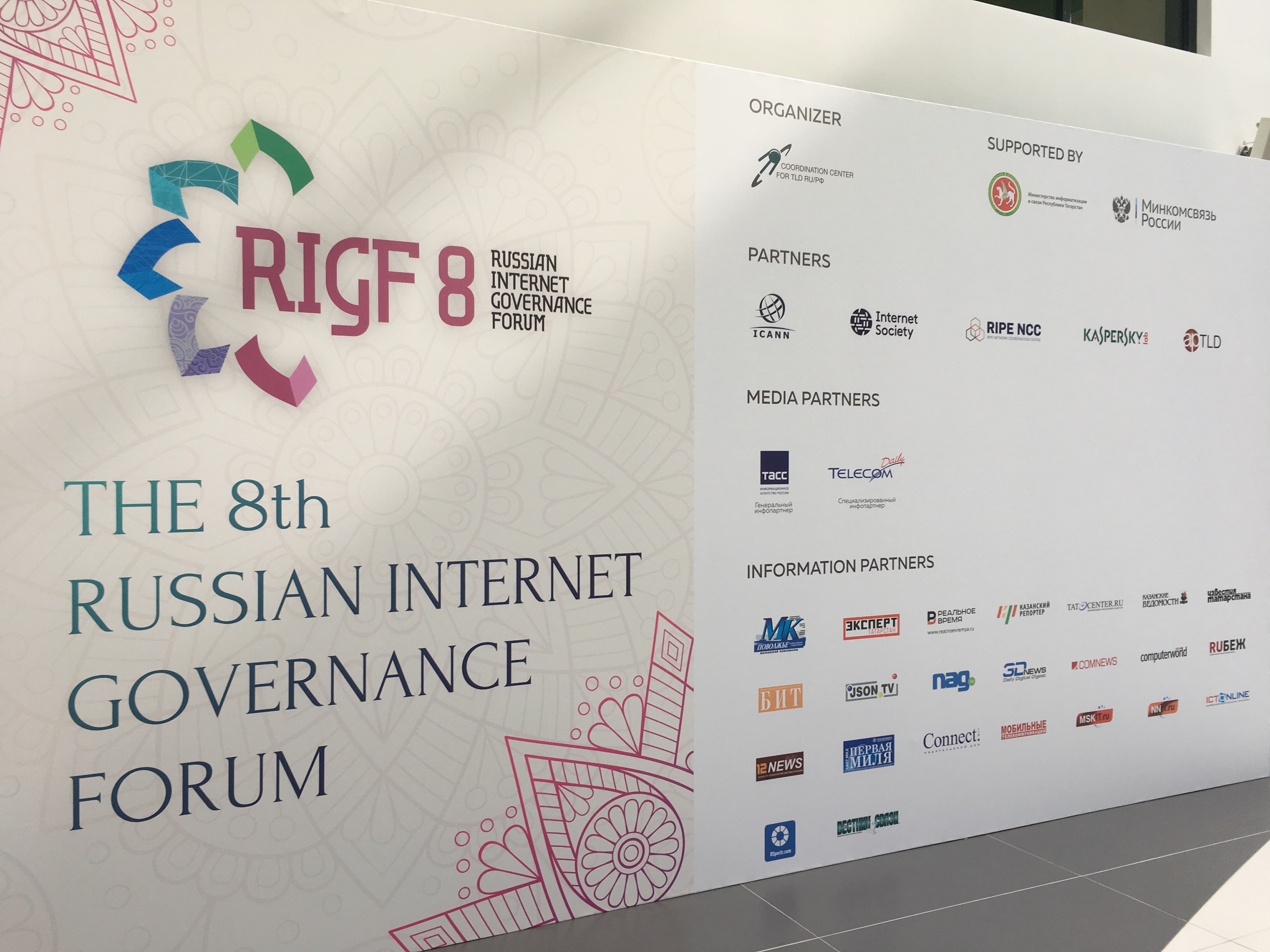On 7 April, the Russian Internet Governance Forum (RIGF) took place in the new city of Innopolis, near Kazan. My main takeaways from this 8th RIGF converge around three themes: digital economy, trust and the next generation of Internet aficionados.
Very much in line with the discussions between the G20 leaders in Germany last week, one of the key messages at RIGF was the importance of digital economy to Russia and its citizens. In his keynote address, Sergey Plugotarenko, Director of Russian Association for Electronic Communications (RAEC), emphasized the importance of the Internet to the Russian economy. RAEC estimates that the Russian Internet sector (RUNET) made up 2,4% of the Russian GDP in 2015 and 19% of GDP when including other sectors relying on the Internet. Despite the challenging economic circumstances in Russia, Plugotarenko noted that the Internet sector is still growing and that the Internet enabled digital economy is a “force for good”. The Internet has obviously delivered on the promise of economic opportunities.
However, there has been a shift in the regulatory environment in Russia since the early days of the Internet towards more restrictive policies, largely explained by concerns about national security. This evolution is not unique to Russia – we have seen similar developments in many parts of the world. In order to ensure a prosperous digital economy, we must address the concerns about Internet security. As Kathy Brown stated in her message from the G20 meeting: “The digital economy will only continue to thrive and generate opportunities for citizens if the Internet is strong, secure, and trusted”.

The cybersecurity session at this RIGF focused on the current landscape of global cyberattacks and on whether it is possible to attribute them to any specific party. While attempting to bring culprits to justice is important, we must make sure that organisations and individual users deploy available tools and practices to prevent and mitigate attacks. Using tools such as encryption will reinforce trust in the digital economy and other Internet services. In the longer term, stakeholders share a collective responsibility to secure the Internet ecosystem and increased cooperation at global level is necessary.
Finally, why in Innopolis? Innopolis is a purpose-built city for high-tech businesses, innovators and students – a showcase of the opportunities provided by the Internet. The Russian Internet community is making great efforts to get the youth engaged in the policy and technical discussions regarding the future of the Internet. As part of the ‘IP&IT Law competition’, held by ccTLD.ru and the IP Club, a number of students were awarded for their policy research projects in areas such as online licensing and blockchain regulation. It was truly motivating to have the young Internet enthusiasts present in the discussions – the future of the digital economy and security is in good hands.
Disclaimer: Viewpoints expressed in this post are those of the author and may or may not reflect official Internet Society positions.
